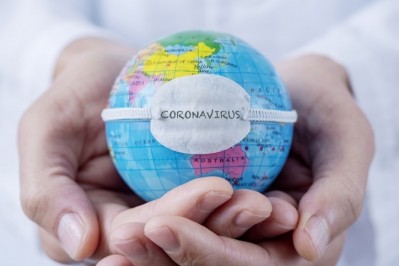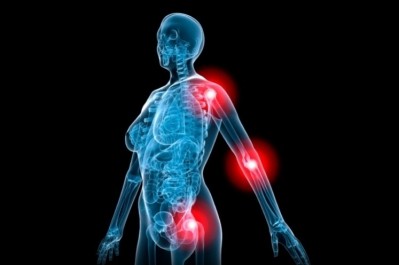Omega-3 rich diet may aid in reducing migraine-linked headaches, study finds

Results found the diet more beneficial in contrast to a diet that blended omega 3 and omega 6 fatty acids, where related molecules have been linked to worsening pain and provoking migraines.
“While the diets did not significantly improve quality of life, they produced large, robust reductions in frequency and severity of headaches relative to the control diet," the team from the University of North Carolina writes.
"This study provides a biologically plausible demonstration that pain can be treated through targeted dietary alterations in humans.
“Collective findings suggest causal mechanisms linking omega-3 and omega-6 fatty acids to [pain regulation] and open the door to new approaches for managing chronic pain in humans," they add.
The team identified the related molecules, known as oxylipins, as the potential source of bioactivity remarking upon the oxylipin receptors’ role in central pain processing pathways, implying a direct link between omega-3 and omega-6 fatty acids and the onset of headache.
CGRP and PGE2
However, Dr Alister McNeish, Associate Professor in Cardiovascular Pharmacology at the University of Reading, pointed out the possible effects of more established chemicals that could not be discounted.
“The authors speculated on a mechanism which reflects high omega-3 reducing levels of pain causing oxylipins but it did not affect other pain causing chemicals with more established links to headache such as CGRP and Certain Prostaglandins (PGE2).
“There are also a plethora of other pathways in the body that can be affected by changes in dietary fatty acid consumption so is hard to be eliminate these as potential contributors to any effects seen.”
He added that those prone to headaches should not start taking omega 3 fatty acid supplements due to this study’s findings.
“This was a controlled dietary intervention which increased levels of both DHA and EPA that found no overall significant effect on the primary outcome and reasonable improvements in secondary outcomes.
“Supplementation would not necessarily reflect the levels of omega 3 here and other elements of diet would not be controlled; supplements of omega-3 fatty acids vary in their purity, composition, and strength so would be hard to precisely match the foods supplied in this study.”
The study enrolled 182 patients (88% female; average age 38 years) with migraine headaches on 5-20 days per month who were randomly assigned to one of three diets for 16 weeks.
The control diet included typical levels of omega 3 and omega 6 fatty acids. One of the interventional diets kept omega 6 acid intake the same as the control, while the other lowered omega 6 acid intake.
The study asked participants to complete the headache impact test (HIT-6) - a questionnaire evaluating headache impact on quality of life. Headache frequency was also noted.
Results revealed both interventional diets increased levels of the pain-reducing oxylipin 17-hydroxydocosahexaenoic acid (17-HDHA) when compared with the control diet,
HIT-6 scores improved in both interventional groups although they were not considered statistically significantly different from the control group.
However, headache frequency was statistically significantly decreased in both intervention groups.
‘Findings clinically meaningful’
In a linked editorial discussing the study findings, Dr Rebecca Burch, a headache medicine specialist commented that while the study was statistically negative regarding the primary clinical endpoint, the overall findings were clinically meaningful.
“The study was negative but would have been positive if judged by more guideline adherent endpoints.
“The International Headache Society guidelines and regulatory standards specify the use of headache or migraine frequency as the preferred outcome measure for trials of preventive interventions for migraine.
“Also, worth noting, the intervention groups experienced a clinically meaningful reduction in HIT-6 scores compared with baseline scores and compared with the control group.”
Tom Sanders, Professor Emeritus of Nutrition and Dietetics at King’s College London, pointed out a limitation of the study that referred to dietary intervention which was ‘complex because the diets differed in respect of several minor components.’
“For example, increasing the intake of salmon also increases the intake of several other micronutrients such as vitamin D and selenium as well as the intake of long-chain omega-3 fatty acids.
“Importantly, the study does not provide any evidence to show that dietary supplements of omega-3 fatty acid provide benefit. However, advice to eat moderate amounts (1-2 serving a week) of salmon would be consistent with current healthy eating advice.”
Source: BMJ
Published online: doi.org/10.1136/bmj.n1448
“Dietary alteration of n-3 and n-6 fatty acids for headache reduction in adults with migraine: randomized controlled trial.”
Authors: Christopher Ramsden et al.















